After completing a strenuous hike, your body requires essential nutrients to recover and refuel effectively.
Consuming the appropriate foods post-hike significantly impacts muscle recovery, energy levels, and overall well-being. Selecting the right nutrients can enhance your recuperation process.
It is beneficial to have a balanced, nutritious, and satisfying meal. Understanding what to consume after a hike is crucial whether you are an experienced hiker or a novice.
Here are some top foods to assist in recharging and preparing for your next journey. Opt for protein-rich choices such as grilled chicken, Greek yogurt, or legumes to aid in muscle repair.
Combine these with complex carbohydrates like quinoa, sweet potatoes, or whole-grain pasta to replenish your energy reserves.
Additionally, healthy fats from sources such as avocados, nuts, and olive oil should be included to support inflammation reduction and overall recovery.
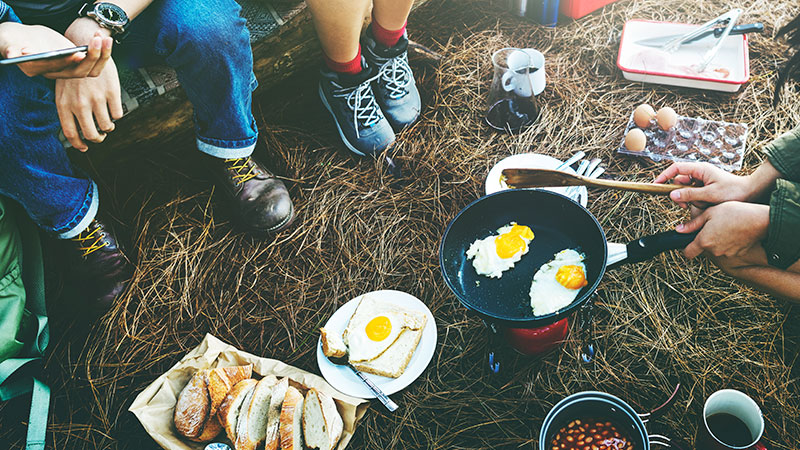
Importance of Post-Hike Nutrition
What you consume after a hike directly impacts your recovery and future performance. Proper nutrition helps your body bounce back stronger and more prepared for your next adventure.
Muscle Recovery
Muscle recovery depends on the nutrients you feed your body. After a hike, your muscles need protein to repair and build new tissue. Include lean proteins like chicken, fish, or tofu in your meal. Adding a serving of Greek yogurt can also provide essential amino acids.
Energy Restoration
Hiking depletes your glycogen stores. Restoring these energy levels quickly is important. Complex carbohydrates help replenish glycogen.
Opt for whole grains, sweet potatoes, or quinoa. A banana or an apple can be added for a quick carb boost.
Hydration and Electrolyte Balance
Proper hydration ensures your body functions optimally. Water is vital, but you also lose electrolytes like sodium, potassium, and magnesium through sweat.
Rehydrate with sports drinks or coconut water. Include foods like bananas, spinach, and avocados to balance electrolytes naturally.
Anti-Inflammatory Properties
Reducing inflammation aids in quicker recovery. Consuming anti-inflammatory foods can help. Berries, leafy greens, and fatty fish like salmon have natural anti-inflammatory properties. Adding turmeric or ginger to your post-hike meal can further reduce inflammation.
Food and Drink After a Hike
After a hike, what you eat matters for optimal recovery and energy restoration. Choosing the right foods and drinks ensures you bounce back stronger and ready for your next adventure.
Salads with Protein

Salads offer a nutrient-packed hit when you add protein. Consider options like grilled chicken, tofu, or salmon. They provide essential amino acids and complement the vitamins and minerals in leafy greens. Throw in nuts or seeds for added healthy fats and a satisfying crunch.
Chicken, Salmon, Quinoa, Lentils, or Other Low-fat Proteins

Post-hike, lean proteins like chicken and salmon help repair muscle fibers. Quinoa and lentils, rich in protein and fiber, aid in muscle recovery and keep you feeling full. Combining these proteins with complex carbs like sweet potatoes boosts glycogen stores.
Burgers

Opt for a turkey or veggie burger for lower-fat options. Pair it with a whole-grain bun to increase fiber intake. Add toppings like avocado or spinach to enhance nutrient density and flavor without the extra calories.
Pizzas

Choose whole grain crusts for pizza and top them with lean proteins like grilled chicken or shrimp. Add a variety of veggies like bell peppers, mushrooms, and spinach. This combination provides a balanced mix of carbs, protein, and essential nutrients.
Quesadillas or Enchiladas

Fill quesadillas or enchiladas with lean meats, beans, and lots of vegetables. Use whole-grain tortillas to increase fiber. Beans provide protein and complex carbs, fueling muscle recovery and replenishing energy.
Protein Drinks or Smoothies
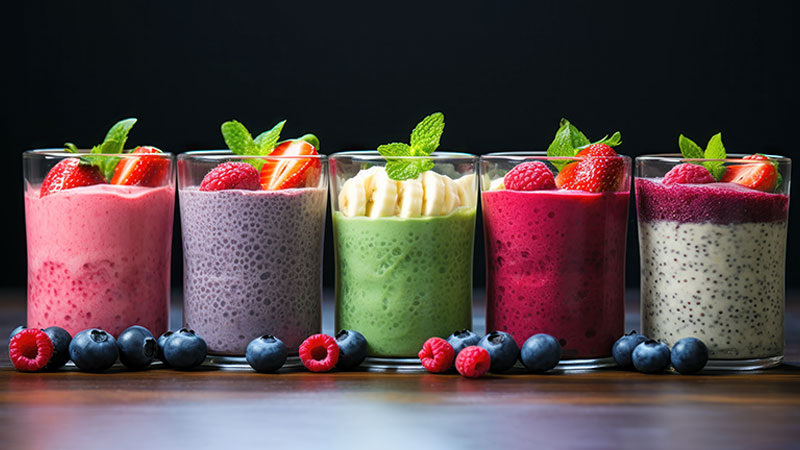
Protein drinks or smoothies are convenient post-hike options. Combine whey or plant-based protein powder with fruits like bananas or berries. Adding spinach or kale boosts vitamin and mineral intake, aiding in quicker recovery.
Grilled or Stir-fried Vegetables
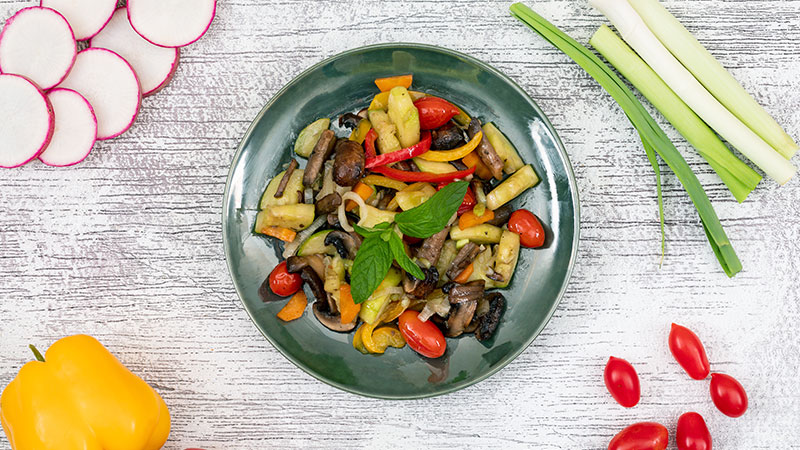
Grilling or stir-frying vegetables with a bit of olive oil retains nutrients. Incorporate a variety of bell peppers, broccoli, and zucchini. Pair them with lean protein sources such as tofu or chicken to create a balanced meal.
Pasta with Protein
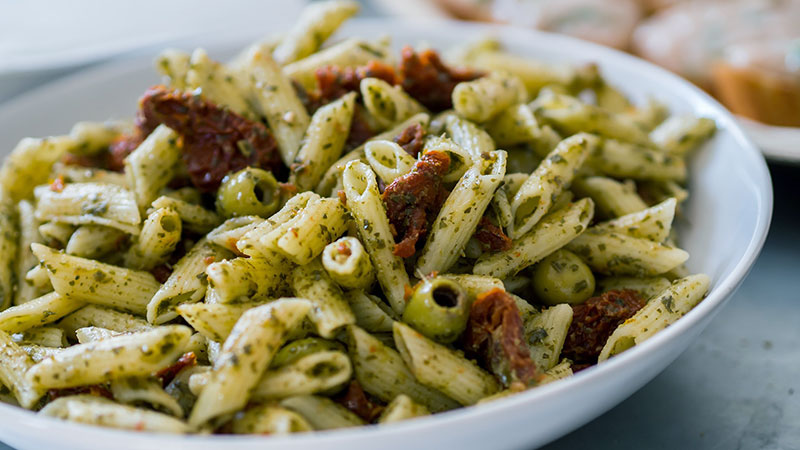
Whole grain pasta paired with protein-packed chicken or turkey is an excellent post-hike meal. Add a tomato-based sauce with extra vegetables like spinach and mushrooms. This combination provides the carbs needed for energy and protein for muscle repair.
Omelets or Scrambled Eggs
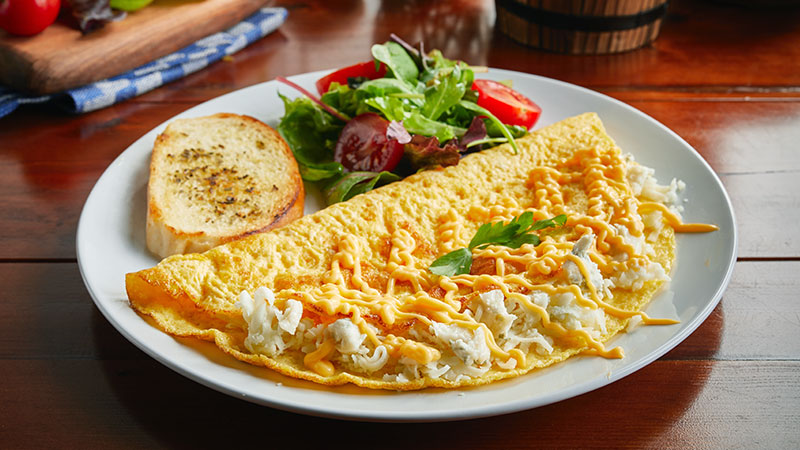
Eggs offer a complete protein source, aiding in muscle recovery. Create omelets or scrambled eggs with vegetables like bell peppers, onions, and spinach. Adding a bit of cheese or avocado enhances the flavor and nutrient profile.
Protein Pancakes or Waffles

Make protein pancakes or waffles using protein powder mixed into the batter. Top with fresh fruits like berries or apples for added vitamins and antioxidants. This option satisfies your sweet tooth while providing essential nutrients for recovery.
Choosing the right foods and drinks after a hike significantly improves muscle recovery and energy levels, helping you prepare for future adventures.
Timing and Portion Control
Eating within a specific window post-hike can maximize your recovery and overall well-being.
How Soon to Eat After a Hike
Begin your recovery smoothly by eating or drinking something 15 to 45 minutes after your hike. This window is ideal for replenishing the energy and nutrients lost during your activity.
Quick snacks can include a banana, which provides a rapid carb boost. Alternatively, a protein smoothie can give you essential amino acids and help rebuild muscles.
Recommended Serving Sizes
Pay attention to portion control to avoid overloading your system. A balanced approach can include:
- Lean Proteins: Aim for about 20-30 grams of protein, such as chicken breast or serving tofu.
- Complex Carbohydrates: Consume around 50-70 grams. Whole grains like quinoa or a medium-sized sweet potato work well.
- Hydration: Drink at least 16-24 ounces of fluids. Options like coconut water or sports drinks can replenish electrolytes effectively.
Incorporate anti-inflammatory foods, such as berries or leafy greens, but keep portion sizes moderate. Consuming the right amount supports efficient recovery and prepares you for future hikes.
Food and Hikers

Post-hike recovery is essential for maintaining your energy and ensuring overall well-being. Choosing the right foods can greatly impact muscle recovery and boost your energy levels.
Hiking and Diabetes
If you have diabetes, managing blood sugar levels after a hike is crucial. Prioritize foods that combine protein, fiber, and healthy fats to maintain steady glucose levels.
Nut butter with whole grain crackers, Greek yogurt with berries, or a small portion of nuts can be excellent choices. Avoid sugary snacks that cause rapid spikes and drops in blood sugar.
Hiking and Celiac Disease
For hikers with celiac disease, gluten-free options are necessary to prevent adverse reactions. Opt for gluten-free grains like quinoa, brown rice, and corn.
Food items such as gluten-free bread with lean meats or nut butter and fresh fruits and vegetables offer safe and nutritious options. Be vigilant with ingredients that may contain hidden gluten.
Hiking and Eating Disorders
Hikers recovering from eating disorders require balanced nutrition to support overall health. It’s vital to focus on nutrient-dense foods that provide energy without promoting restriction or overeating.
Options include avocado toast on whole grain bread, lean proteins like chicken or fish, and nutrient-packed smoothies. Avoid foods that may trigger disordered eating behaviors.
In all scenarios, prioritizing hydration and nutrient balance will aid recovery after a hike.
Frequently Asked Questions
What are some good sources of lean protein after a hike?
Lean proteins like chicken, fish, tofu, and Greek yogurt provide essential amino acids needed for muscle repair. These proteins help your muscles recover more efficiently after an intense hike.
What types of carbohydrates are best for post-hike recovery?
Complex carbohydrates like whole grains, sweet potatoes, and quinoa are ideal. They help restore your glycogen stores, providing sustained energy for recovery.
How important is hydration after a hike?
Hydration is vital for replenishing lost fluids and maintaining electrolyte balance. Drinking water, sports drinks, or coconut water can help rehydrate your body effectively.
What foods can help with inflammation after hiking?
Anti-inflammatory foods like berries, leafy greens, fatty fish (e.g., salmon), turmeric, and ginger can reduce muscle inflammation and promote quicker recovery.
What portion sizes should I consider for post-hike meals?
A good guideline is to consume about 20-30 grams of lean protein, 50-70 grams of complex carbohydrates, and 16-24 ounces of fluids to maximize recovery after a hike.
Conclusion
Paying attention to your post-hike nutrition is key to effective recovery and overall well-being. By making smart food choices, you can significantly boost muscle recovery and energy levels, preparing yourself for future adventures.
Opt for lean proteins, complex carbohydrates, and hydration sources to replenish your body. Don’t forget to incorporate anti-inflammatory foods to aid in quicker recovery.
Timing and portion control are crucial, so aim to eat or drink something within 15 to 45 minutes after your hike.
Whether you have specific dietary needs or not, there are plenty of nutritious and delicious options to choose from. Prioritize balanced meals and snacks to ensure you’re ready for your next hike.
